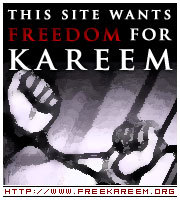Stratfor on Musharraf's Crack Down
Stratfor on Musharraf's latest crack down on the media in Pakistan.
Pakistani President Gen. Pervez Musharraf on Thursday called an emergency meeting of the country's top military brass, including corps commanders and agency heads, for June 1 to discuss the domestic political situation. The same day, Information and Broadcasting Minister Sen. Muhammad Ali Durrani announced that all private electronic media outlets must now obtain permission from the Pakistan Electronic Media Regulatory Authority before each live broadcast. Pakistan's Supreme Court also said it plans to investigate reports of state authorities and political groups harassing and threatening journalists. The country's increasingly assertive judiciary and media have played a key role in the growing crisis of governance. The most recent blow to Musharraf came May 26 during a Supreme Court Bar Association seminar entitled "Separation of Powers and Independence of the Judiciary," when several prominent lawyers harshly criticized the government and the military's control of the state. Several TV channels carried the event live. The seminar enraged the Musharraf regime, which responded by saying abusive and derogatory remarks about national institutions, especially the armed forces, will not be tolerated. In a May 30 speech to officers at the Jehlum garrison, Musharraf warned the media to stop politicizing the judicial crisis, though media criticism of the Pakistani government is hardly unprecedented. In fact, the country has seen a major proliferation of private television channels under Musharraf's rule. The government allowed this in order to counter public criticism that it is a military-dominated autocratic regime. It also could afford to allow the increasingly vibrant media its freedom since Musharraf faced no real challenge to his rule. But in the wake of the suspension of Supreme Court Chief Justice Iftikhar Mohammad Chaudhry, this vibrancy has damaged the public perception of the government. Yet, because the country's opposition parties continue to be divided over how to move against Musharraf, media coverage of political events and the broadcasting of damning criticism have not resulted in the protests attaining critical mass. Nonetheless, the government is moving toward a major crackdown that will drastically curtail free speech. The nature of the criticism -- which has been aimed not only at the president, but also at the military's domination of the state -- and its reception within Musharraf's own constituency could present major problems for Musharraf's ability to rule. Musharraf's most important source of power is the support he receives from the military, particularly the army. Criticism of Musharraf due to his dual role as military chief and president is one thing, but the questioning of the military's control over the state changes things dramatically. This forces the top generals to question Musharraf's ability to look after the military's interests. Hence, Musharraf is rushing to clamp down on the media. He must now show the generals he is very much in control and is capable of ensuring that the military maintains its hold on the state. Losing the confidence of the army's senior leadership would prove fatal to his own hold on power. It is unlikely a crackdown on political dissent will help Musharraf shore up his position; in fact, it likely will make the situation worse for him. The verdict in Chaudhry's appeal case and the controversial presidential vote set to take place in September will only accelerate the momentum of the country's growing unrest.[Stratfor] |

No comments:
Post a Comment